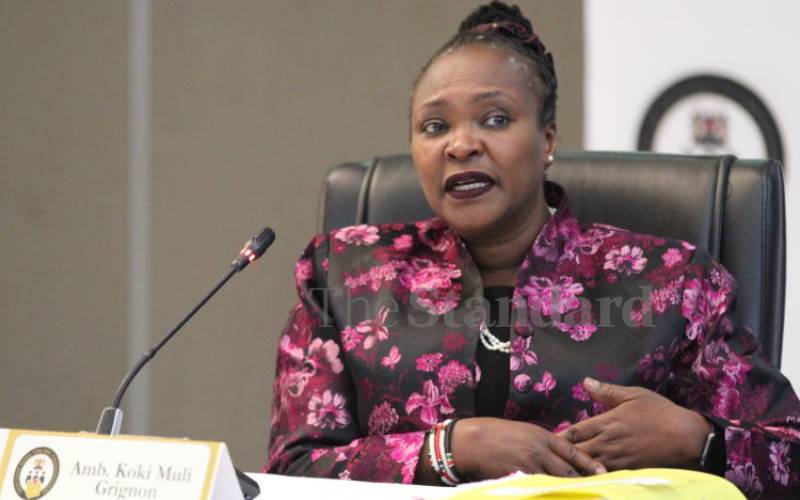×
The Standard e-Paper
Home To Bold Columnists

Amb. Koki Muli Grignon. [Elvis Ogina, Standard]
Voter registration is the process through which eligible Kenyans qualify to vote and to be elected. The Independent Electoral and Boundaries Commission (IEBC) is constitutionally mandated and obligated to conduct voter registration. IEBC is also obligated to provide voter education and to reach out to all eligible voters to ensure they are registered.